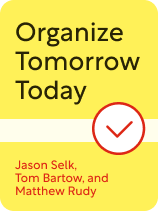

This article is an excerpt from the Shortform book guide to "Organize Tomorrow Today" by Jason Selk, Tom Bartow, and Matthew Rudy. Shortform has the world's best summaries and analyses of books you should be reading.
Like this article? Sign up for a free trial here.
How do your write an effective to-do list? What tasks should you prioritize when writing a to-do list?
Planning for and prioritizing your most important tasks a day in advance helps you start your day with clarity about where to place your efforts. A simple way to do that is to write a to-do list of the most important things you need to do.
Here are some tips on how to write a to-do list that you’ll actually stick to.
Write and Prioritize Your To-Do Lists a Day in Advance
Selk, Bartow, and Rudy suggest you take time every day to write a to-do list of the tasks you need to accomplish the next day. Instead of writing a to-do list of everything you want to get done in the near future, limit tomorrow’s to-do list to the three most important items you need to finish.
(Shortform note: If the idea of limiting your daily to-do list to just three important items doesn’t appeal to you, there are many other ways you can prioritize your to-do list. For example, you can use Brian Tracy’s ABCDE method from Eat That Frog!. Label each item on your to-do list with one of five letters: A for tasks that you must do, B for tasks that you should do, C for tasks that would be nice to do, D for tasks to delegate, and E for tasks to eliminate.)
(Shortform note: Writing your to-do list the night before doesn’t just reduce morning stress—it can also help you sleep better. A 2018 study found that participants who wrote a detailed to-do list five minutes before bed fell asleep faster than participants who journaled about activities they had already completed.)
The authors note that what’s most useful and important to get done will look different for everybody. Whatever the tasks are, they should give you forward momentum in your day, in your projects, and in your general path to success. For example, these tasks could be setting up important meetings, making phone calls to clients, sending outreach emails, practicing for a big presentation, planning for an event, and so on.
(Shortform note: If you struggle to decide which three tasks on your master to-do list are most important for maintaining forward momentum, try writing a sentence about how each task fits into a bigger purpose in your work. Then, write your to-do list using the three tasks that serve the most beneficial or crucial purposes to your overall work right now. For example, if one of your tasks is to create a social media post, the bigger purpose might be to increase awareness of your business or to draw in more customers. You may prioritize this over a task that serves a less crucial purpose, like decorating your office to impress clients you meet in person.)
How to Write Your Three-Item To-Do List
When you write your three-item to-do list, the authors advise that you don’t write down full projects—choose individual tasks that can realistically be finished in a single workday. For example, a project might be planning a big work event, and a task involved in that project (and a potential item on your to-do list) could be sending out invitations.
(Shortform note: Though you can’t finish a whole project in a single day, the tasks you complete on your to-do list probably represent steps toward finishing a larger project. To keep track of your progress toward project completion, consider labeling each task you put on your to-do list with the name of the project it relates to. Many organization apps like Asana and Todoist allow you to categorize your tasks by project.)
Choose one of the three tasks you wrote down and label it as the most important. This should be something that you have to do tomorrow no matter what. Before you do anything else the next day, complete the most important item on your three-item to-do list.
(Shortform note: In The Psychology of Selling, Brian Tracy offers advice on how to figure out the most important item on your to-do list. He suggests asking yourself two questions: First, if you were going out of town the next day and you could only do one thing on the list before you left, what would it be? Second, which of the tasks will have the most positive effect on your work if you complete it?)
Selk, Bartow, and Rudy argue that choosing one item to start with makes you more likely to take action to complete it. Once you get started on the first task, your momentum will carry you forward, and it’ll be easier to complete the other to-do list items.
(Shortform note: There’s a scientific explanation behind the authors’ assertion that completing one task gives you momentum to finish others. Research shows that when you complete a small goal or task, your brain releases dopamine, a chemical that makes you feel good. Dopamine also improves memory, focus, and motivation, priming your brain for further optimum productivity.)
Try to complete all three tasks early in the day. Once you finish the three priority tasks, you can spend the rest of your day completing any other tasks you want.
(Shortform note: There are multiple reasons why starting your day with your most important tasks increases the likelihood that you’ll finish them. For one, you’re likely most productive in the morning because your mind is fresh and your self-control is strong. As the day progresses and you have to make more and more decisions, your self-control weakens. Additionally, mornings often have fewer distractions, making it easier for you to finish your tasks uninterrupted. If you find that your mornings are filled with interruptions, consider waking up earlier, when fewer people are around to distract you.)

———End of Preview———
Like what you just read? Read the rest of the world's best book summary and analysis of Jason Selk, Tom Bartow, and Matthew Rudy's "Organize Tomorrow Today" at Shortform.
Here's what you'll find in our full Organize Tomorrow Today summary:
- How to prioritize and prepare for your tasks every day
- How you can improve your life through positive habits
- Why you need to break free from a perfectionist mindset






